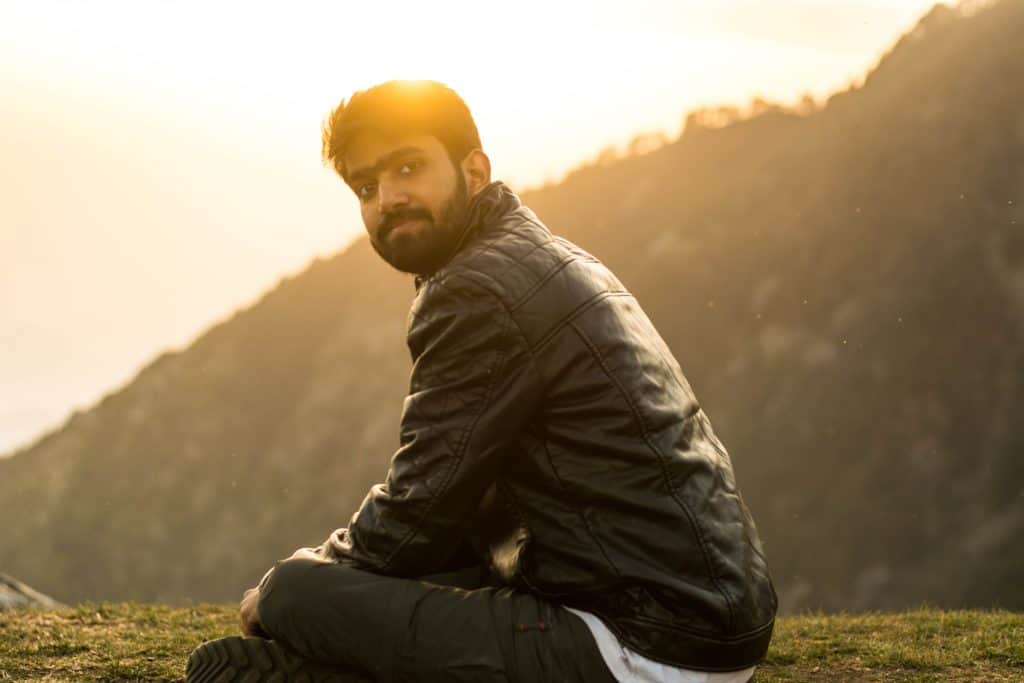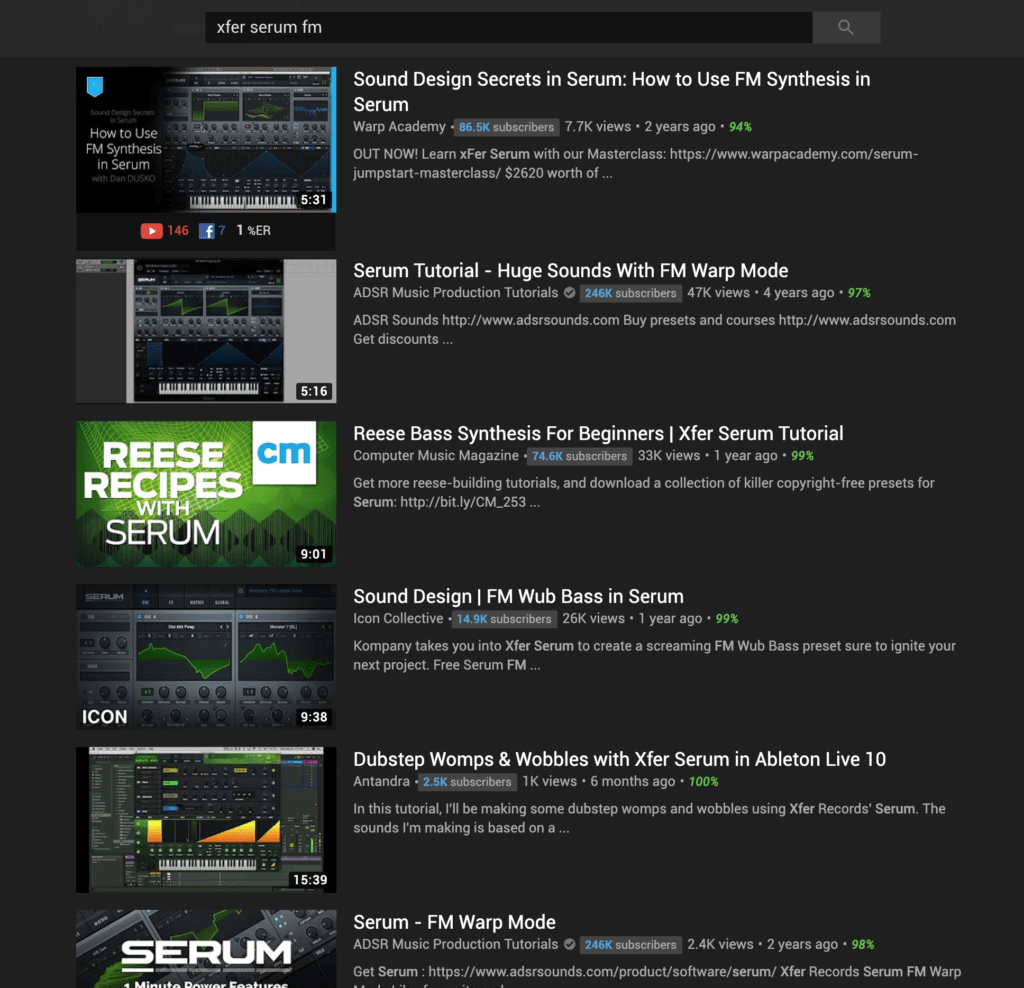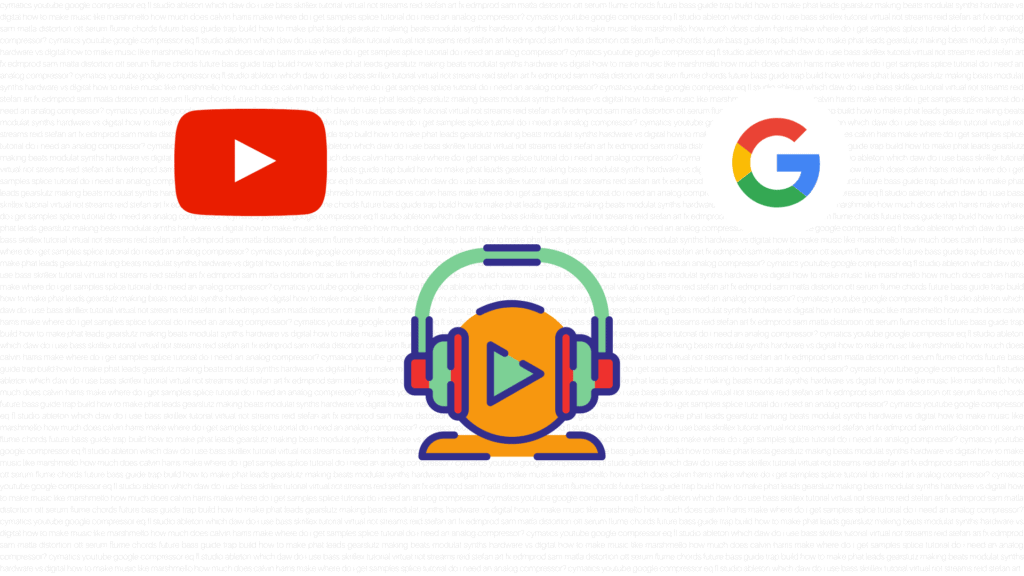I’m going to answer this question in the first sentence – yes.
In fact, you can do many things by finding free tutorials and guides online – building houses, making cakes and learning chess.
YouTube and Google are fantastic resources for learning music production, and there is so much information out there that you couldn’t possibly uncover it all.
So if I can get all this knowledge for free on the internet, there’s no need to buy a course online, or spend money on music production at all and you can close this tab, right?
Not exactly.
See, 10 years ago I would have seen the above and exited out of this article. But I want to illustrate a different perspective.
Let’s go.
A Tale of Two Producers
I want to introduce you to Jim.

Jim’s a 21-year-old who’s been producing for 6 months.
He first got a copy of FL Studio on his brand new Windows laptop and was prepared to take the world by storm with his future bass hits.
New to production, he only had his aforementioned laptop, a pair of headphones and a few hundred dollars saved up from his casual job at Dominoes.
His plan? YouTube, Google and whatever free stuff he can find (even some of our free resources).
He’s heard the inspirational stories of producers like this one from Reddit:

and this one:

so he thinks that ‘in order to make unique music, I need to teach myself’.
In 6 months time, the chances are he will produce less and less because he’s not improving. He’s piecing together the puzzle, but large chunks are still missing.
He’s subscribed to Cymatics, EDMProd, Zen World, Reid Stefan and many more channels, but he hardly opens FL Studio.
And that few hundred dolllars he has? He buys some Waves plugins, NI Massive (because he saw Marshmello use it) and Serum.
He even gets a barrage of free plugins, utilizing his ‘free is better’ mentality.
He has no idea how they work, but he’ll figure it out. Right?
Yet in the studio, he’s too busy figuring out whether to learn Massive or Serum first, when he should use an EQ in his signal chain, and playing around with half-baked sounds in a drum loop.
At this point, he’s frustrated, but certain that things will one day ‘click’ and turn around for him.
A Different Approach
Now meet Jamal.

He’s a 25-year old music producer, and he’s just downloaded his first copy of Ableton Live on his brother’s old Macbook.
With a little bit of spare time when he’s not working as a mortgage broker, he wants to pick up some music production skills so he can pursue his real dream – becoming a world-class hybrid trap DJ.
He buys a pair of ATH-M50x’s and grabs a copy of Serum on Splice. He’s hesitant to buy other plugins because Live looks confusing enough.
Now Jamal knows his time is limited, and he wants to become good – fast. Not because he’s after a quick hack, but because he’s smart.
As a mortgage broker, he knows that people aren’t going to get advice for free. And if they did, it’s likely bad, limited or uninformed advice.
So he’s going to seek out experienced producers who not only have made music in the industry, but who can teach what they know well.
So he signs up for EDM Foundations. He read some reviews, and thought it looked good.
He starts working his way through the course, and he’s already recreating a full, professional-level future bass track, and learning what makes it work.
Within 6 months, he’s not only re-created 4 tracks, but he’s made 4 of his own trap tunes. Because he knows the process and workflow behind music production, he can start to make his own tracks and adapt his workflow as he has new ideas.
The first 3 were pretty crap, but he learned a lot by going through the process of finishing them.
This 4th one though, things finally started to click a bit more. The chords flowed, the drop was simple but hit hard, and the mixdown was spacious yet loud.
It’s not perfect, but it’s good.
In fact, a smaller label might be interested in signing it once he makes a few changes from some feedback he got in relation to the mixdown and master.
Apart from that, he even watches the occasional tutorial to figure out how QUIX might make his leads so unique, how to make a specific Reese bass, or how to clean up his mixdowns a bit more and get them loud.
Now notice the difference.
One producer is learning lots of plugins, watching a barrage of tutorials and making occasional loops.
The other is making finished music, receiving quality feedback and even getting tunes signed to labels.
Why Tutorials Aren’t Everything
The fallacy in Jim’s thinking was the belief that ‘in order to make unique music, I need to teach myself’.
This isn’t true.
Maybe you can become good by just watching tutorials and googling things. But here’s two realities:
- It’s not fast.
- It won’t make you any more unique.
It’s Not Fast
One of the most popular responses for new producers when signing up for our facebook group is ‘I don’ know where to start’.
The first thing Jim probably typed into YouTube was ‘How To Use FL Studio’ So he watches a video, and learns a few things.
He opens it up for himself, and understands a bit more. But where do the good sounds come from?
He searches ‘sounds for FL Studio’. But should he use WAVs? Does he need a plugin for drum programming? Does he need Splice?
Soon, he’s in a Google frenzy, trying to figure it all out.
And he’s not making music.
But Aden, there are free and structured YouTube courses out there as well.
Awesome, and they’re great. But naturally, they don’t go into as much depth, because it’s YouTube.
It Won’t Make You Unique
Uniqueness and ‘finding your own sound’ doesn’t come from YouTube tutorials.
It comes from practice and building off your knowledge of the fundamentals.
As the saying goes, you need to know the rules in order to break them.
You can learn these techniques equally from YouTube or from a course, but I know what I’d rather be doing.
(Also, it’s easy to be unique and still be bad. Just throw in random sounds together and export.)
My Experience
To be honest, I was this guy for a very long time. In fact, I spent all of 2009-2016 getting by with this unstructured approach.
And my music was still average.
Granted, I was young and had no money. But it wasn’t until I saw the benefit in structured learning where I really understood the fundamentals so well.
EQ didn’t matter if my sample was bad. The Serum patch didn’t matter if my melody was weak. My mastering job was futile if the mix was all over the place.
My whole perspective changed.
Utilize Free Resources Properly
Like I said from the start – YouTube and Google aren’t bad places to learn.
However, I like to think of them as supplementary resources. They fill in specific gaps for problems I come across.
I’ll follow a few of my favoruite channels, conduct a serach when I want to learn something, and follow along practically.

Yet I don’t rely on them for learning fundamental principles, because that’s not sexy to title a video with. It’s additional learning.
Recommended: Ableton Tutorials: The 21 Best YouTube Channels
Be Like Jamal
6 months might seem like a short time, but it can set you off on any number of trajectories.
Maybe you’ve been Jim for years, and haven’t gotten anywhere.
It’s not too late.
But I get it – you’re hesitant to spend money on a course.
That’s why we created our free video training – so you can get a feel for us. And hey, maybe you’ll end up signing up for EDM Foundations and join our 3400+ producers who’ve had great results.

